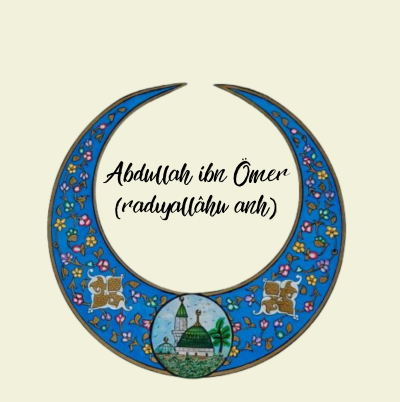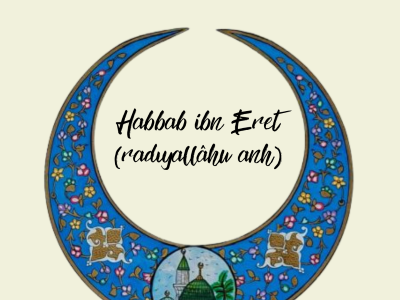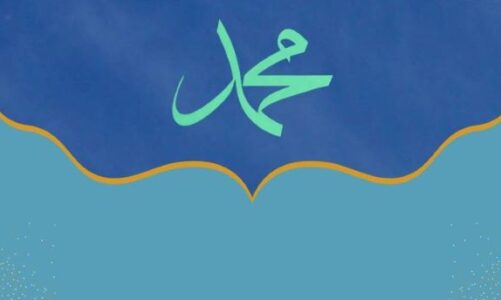You were a radiant-faced hero. Your hair would fall over your shoulders. With dark skin, medium height, and a handsome face, you were like your father. Among your siblings, you resembled your father the most.[1] Your posture and courage made it clear that you were the son of the Honorable Umar, may God be pleased with him.
You were honored with faith along with your father. Muslims felt the peace of having a hero like Umar by their side. Your radiant face caught attention at first sight. Like your father, you had a heart full of bravery.
At the age of 13, you wished to join the Battle of Uhud, but the Messenger of God, peace and blessings be upon him, did not permit you. You were very upset when you could not participate in the Battle of Badr. When you turned 15, you could not stay put. You asked for permission once more, and when you took your place in the Battle of the Trench, you challenged the world as if. Years later, you participated in the Siege of Constantinople (674–678), where Abu Ayyub al-Ansari, may God be pleased with him, was also present.[2]
Through your sister, the Honorable Hafsa, may God be pleased with her, you were very close to the Messenger of God, peace and blessings be upon him. Thus, you listened to our Prophet more. You conveyed the hadiths you heard, avoiding even the use of similar words. This nurtured the love for you into a flourishing trust. You became the second most prolific narrator of hadiths after the Honorable Abu Hurayra, may God be pleased with him.[3]
You strived to live your life in emulation of the Pride of Humanity. Whenever a word came out of the blessed mouth of our beloved Prophet, it took its place at the center of your life. One day, you knocked on your sister’s door with a dream. You felt you had a message but refrained from interpreting it. Upon the Messenger of God’s, peace and blessings be upon him, saying, “What a good man Abdullah is! If only he would pray at night!”[4] you adorned your nights with tahajjud.
Throughout your life, your door was knocked for solutions to problems, and you would give fatwas guided by the Qur’an and Sunnah. Over time, you gave so many fatwas that you became one of the seven wonderful people. To someone who persistently asked for a fatwa on an issue about which you were not firmly convinced, you said with all your majesty, “Do you want it to be said, ‘Ibn Umar gave such a fatwa,’ and make our backs bridges to Hell?”[5]
You were likened to the Messenger of God for your calm and gentle nature. To the point that, to someone who followed and insulted you along the way, you did not say a word until you reached your home’s door, then said, “My brother Asim and I do not speak ill of anyone.”[6]
You were considered one of the wealthiest among the Companions, but you did not allow your wealth to accumulate. You would distribute what came into your hands to the needy. When a gift arrived, you would give it to those in need the same day. You did not hesitate to give away the things you owned, especially those you liked the most, for the sake of God. You treated those who worked with you very well. During your time, people were sold as slaves. The Companions who could afford it would buy these people from slave markets and grant them their freedom. You were among those who freed slaves in this manner.
You dressed simply and ate sparingly. You knew the pleasures of the self, the dangers of flashy dressing, and overstepping the bounds.
Your heart harbored such great love for the beloved Prophet, peace and blessings be upon him, that you were very careful to fulfill his command about greeting. You would greet every Muslim you saw, regardless of their age. Your love was so deep and strong that you would learn the places where the Messenger of God prayed and perform your Prayers there. When walking on the paths he walked, you tried to feel his steps. Even when you were tired and sought rest, you chose the trees that cast their shadows over you. Those trees were like a trust under your care.[7]
Abu Salama, may God be pleased with him, said about Ibn Umar, may God be pleased with him, who was akin to his father in virtue: “There were others like Umar in his time, but in Abdullah’s time, there was no one like him.”[8]
[1] M. Yaşar Kandemir, “Abdullah b. Ömer b. Hattâb”, islamansiklopedisi.org.tr/abdullah-b-omer-b-hattab
[2] “Abdullah İbni Ömer (r.a.) Kimdir?”, www.islamveihsan.com/abdullah-ibni-omer-r-a-kimdir.html
[3] He was among the Muqsirun, the seven Companions, who narrated the most hadiths.
[4] Bukhari, Fadailu’s-Sahabe, 19.
[5] Muhammad Rawwas al-Qal’aji, Mawsu’atu fıqhi Abdillah ibn Umar, Beirut: Daru’n-Nafais, 1406/1986.
[6] Kandemir, ibid.
[7] Bukhari, Fazâʾilu Ashabi’n-Nabi, 19.
[8] Kandemir, ibid.




